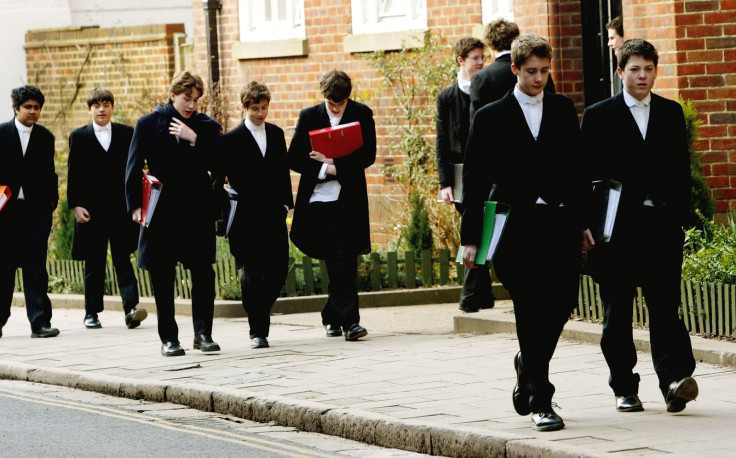Poshness Test: Top employers 'systematically excluding bright working-class applicants'

Working-class applicants struggle to get access to the best jobs in the UK and are "systematically excluded" to the benefit of those who went to grammar schools and private schools, government research has shown.
Employers at elite law, accountancy and financial services firms have placed "non-educational barriers" in the way of bright state school-educated workers, valuing soft skills like presentation and confidence in interview over ability and creating a so-called "poshness test".
Research conducted by the Social Mobility and Child Poverty Commission has found that 70% of job offers by 13 top-tier employers in 2014 were to graduates who had attended a selective state or fee-paying school, when only four and seven per cent of the population go to those kinds of schools.
The commission conducted extensive interviews with staff at the 13 firms which are responsible for 45,000 of the best jobs in the country.
Elite firms seem to require applicants to pass a 'poshness test' to gain entry
Former cabinet minister Alan Milburn, who chairs the commission, said in a statement: "This research shows that young people with working-class backgrounds are being systematically locked out of top jobs.
"Elite firms seem to require applicants to pass a 'poshness test' to gain entry. Inevitably that ends up excluding youngsters who have the right sort of grades and abilities but whose parents do not have the right sort of bank balances."
The data outlines that best practice firms have adapted their selection techniques, by, for example, no longer screening on academic credentials. Some firms are also exploring the use of socioeconomic data to contextualise academic performance at school. However, for the rest this is a "wake up and smell the coffee moment," the report concludes.
In some top law firms, trainees are more than 5 times likely to have attended a fee-paying school than the population as a whole and because of this employers are "denying themselves talent, stymying young people's social mobility and fuelling the social divide that bedevils Britain".
Dr Louise Ashley of Royal Holloway, University of London, Research Project Lead, said: "Our research finds that recruitment and selection processes which advantage students from more privileged backgrounds remain firmly in place at most elite law and accountancy firms. As such, despite their focus on specific social mobility in initiatives, the rate and pace of change is limited."
© Copyright IBTimes 2024. All rights reserved.






